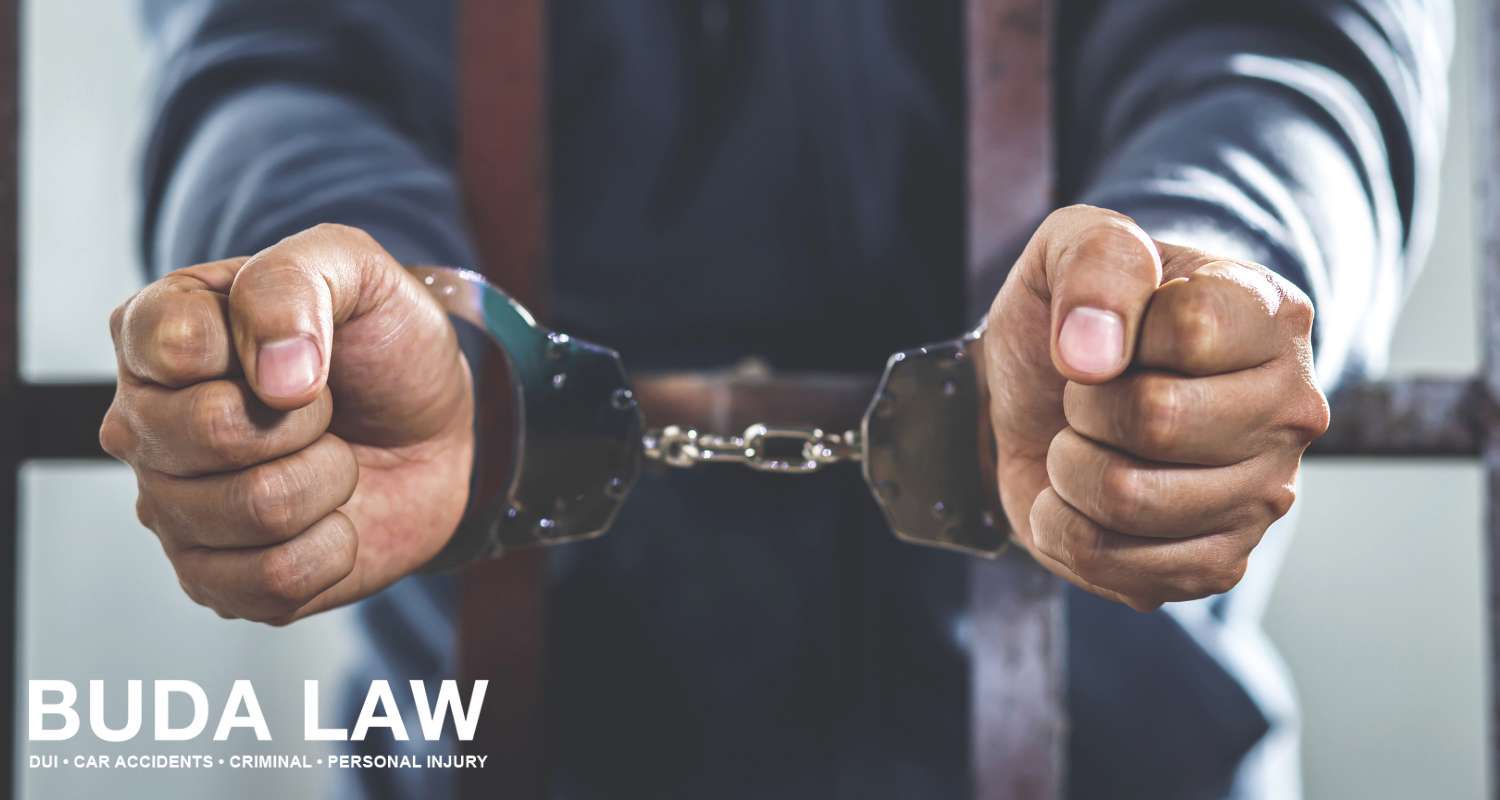Aggressively Fighting for the Best Possible Outcome
TAMPA HARASSMENT AND STALKING LAWYERS
Work with an Experienced Former Prosecutor
In Tampa, FL, harassment and stalking charges are not taken lightly. These criminal offenses are prevalent and carry severe repercussions for those accused. Buda Law, a Tampa law firm led by experienced attorney Andrew Buda, understands the profound impact these allegations can have on individuals’ lives. He and his legal team are highly skilled in defending clients against a number of criminal charges, including harassment and stalking charges, and fight tirelessly to ensure they receive the best possible outcome in their case, whatever that may look like given the situation.

If you or someone you love has been accused of stalking and/or harassment, we encourage you to give us a call at (813) 322-2832 or contact us online today for a free consultation.
What are Stalking and Harassment Charges?
Under Florida law, stalking and harassment charges refer to acts where an individual is accused of repeatedly harassing, following, or cyberstalking another person, causing them emotional stress or fear for their safety. These offenses can be classified as either a misdemeanor or a felony offense, depending on the severity of the actions and whether threats were made or a protective order was violated.
Specifically, stalking is defined as the willful, malicious, and repeated following or harassing of another person, while harassment refers to engaging in a course of conduct directed at a specific person and causing substantial emotional distress that serves no legitimate purpose.
Florida Statutes 784.048
Florida’s stalking statute can be found under section 784.048 of the Florida Statutes and outlines the legal framework for stalking charges within the state. This statute defines stalking as a first-degree misdemeanor when a person willfully, maliciously, and repeatedly follows or harasses another individual, causing them emotional distress.
When this behavior includes credible threats, making the victim fear for their safety, the charge escalates to an aggravated stalking charge, classified as a third-degree felony. Other aggravating factors may include stalking that involves repeat violence, cyberstalking, stalking that violates specific court orders, and stalking that involves a minor.

Types of Stalking Charges in Florida
The criminal offense of stalking can be considered either a misdemeanor or a felony offense depending on the circumstances surrounding the crime. Below are different types of stalking charges one might be faced with here in Florida.
Stalking (Simple Stalking)
Simple stalking is a form of behavior that can be closely associated with domestic violence or dating violence. It involves a person willfully, maliciously, and repeatedly following or harassing a specific person, causing significant emotional distress to the alleged victim.
Florida stalking laws are designed to protect individuals from such unwanted attention, which often escalates from troubling behavior to more serious threats or actions. A protective order, commonly known as a restraining order, may be issued when there is probable cause to believe that stalking has occurred.
Cyberstalking
According to Florida Statute Section 784.048, cyberstalking refers to repeatedly engaging in actions that involve communicating words, images, or language through electronic mail or other forms of electronic communication to a specific individual with the intent to harass. It also includes accessing or attempting to access someone’s online accounts or Internet-connected home electronic systems without their permission.
If you have been accused of cyberstalking, hiring a Tampa cyber crime attorney can help.

Aggravated Stalking After an Injunction
Aggravated stalking charges are applied in cases where a person engages in a course of conduct that constitutes stalking after a court has issued an injunction for protection against domestic violence or a no-contact order (restraining order).
Aggravated stalking after an injunction is considered a serious crime due to several factors, most notably the defiance of a court order. When an individual deliberately ignores such a legal directive, it not only undermines the court’s authority but also poses a significant threat to the alleged victim.
The issuance of an injunction for protection is a legal measure intended to protect individuals from threats and harassment; therefore, violating this order by continuing to stalk the victim elevates the severity of the offense, demonstrating a flagrant disregard for both the victim’s well-being and the judicial system’s mandate to protect it.
Aggravated Stalking of a Minor
Aggravated stalking of a minor involves the act of stalking an individual under the age of 16 and is classified as a third-degree felony in Tampa. Aggravated stalking in this context not only pertains to the persistent following or harassment of the minor but also includes instances where the perpetrator’s actions are motivated by lewd or lascivious intent. This potential for sexual violence against a minor elevates the crime to one of the most serious under the category of stalking.
Criminal penalties for such offenses are often very strict, as the law recognizes the profound impact that lewd or lascivious offenses committed against minors can have, both immediately and in the long term.
Aggravated Stalking With a Credible Threat
Aggravated stalking with a credible threat is yet another severe violation under Florida law and is also classified as a third-degree felony punishable by prison time, fines, and more. This form of aggravated stalking occurs when an individual continues to pursue or harass another person while having made a credible threat that puts the victim in reasonable fear for their safety or the safety of their loved ones.
The term “credible threat” means the threat is real and serious, not speculative or imaginary. This can include verbal and nonverbal threats of sexual battery, physical harm, or other forms of violence.

What is the Sentence for a Stalking Conviction in Florida?
In Florida, the sentences for stalking convictions vary significantly based on the severity and specific circumstances of the offense.
Simple stalking is considered a first-degree misdemeanor, which involves less severe forms of harassment without credible threats or physical harm. This charge can lead to penalties such as probation, restraining orders, or up to one year in jail.
Aggravated stalking, which encompasses stalking with a credible threat, stalking of a minor, or stalking after an injunction, is classified as a third-degree felony. This more serious designation is due to the added elements of credible threats, targeting vulnerable victims, or defiance of court orders. Convictions for aggravated stalking charges will result in stricter penalties, including up to 5 years in prison, significant fines, and long-term restraining orders.
Other Long-Term Consequences of a Conviction
Beyond the immediate legal penalties, a conviction for stalking (or even just being accused of stalking) can have profound long-term consequences on various aspects of a person’s life. Professionally, the stigma of a crime related to stalking can lead to job loss, difficulties in securing employment, and tarnished professional relationships.
Socially, the impact is equally detrimental; friends, family, and potential acquaintances may distance themselves due to fear, misunderstanding, or the desire to disassociate from the stigma of such serious accusations.
The ramifications extend to nearly every facet of a convicted person’s life, including hindering future relationships, community involvement, and even housing opportunities, illustrating the far-reaching effects of these charges beyond the confines of the courtroom.
The Importance of Hiring Experienced Legal Representation for Stalking and Harassment Charges
If you’ve been accused of harassment or stalking in Tampa, Florida, hiring an experienced criminal defense attorney is crucial to securing a positive outcome in your case. Such cases are often very complex and fraught with emotional and legal intricacies that require a nuanced understanding of both the law and the sensitive nature of the allegations. Andrew Buda, a seasoned Tampa criminal defense attorney, leverages his legal knowledge and strategic insight to defend clients accused of harassment and stalking.
Buda focuses on crafting a solid defense that addresses both the factual and legal aspects of the case. This includes challenging any evidence that might be rooted in misconceptions or inaccuracies, countering false allegations, and introducing additional evidence that could create reasonable doubt about the commission of the crime.
His dedication to justice and understanding of the legal system enables him to advocate fiercely for his clients, aiming to secure their freedom and protect their reputations amidst the challenges of such accusations.

Call a Tampa Stalking Defense Attorney at Buda Law Today
Facing criminal charges in the Tampa Bay area? The experienced Tampa stalking defense attorneys at Buda Law are here to help. We are proud to represent clients throughout Hillsborough County, Pinellas County, and beyond, leveraging our vast experience and knowledge of Florida criminal defense law to craft a strong defense strategy tailored to your unique situation.
Don’t let allegations define your life. Call Buda Law at (813) 322-2832 or reach out online today to set up your free consultation and take the first step towards regaining your peace of mind and securing the best possible outcome for your case.
CASE RESULTS
Get the Toughness of a Trial Attorney
START BUILDING YOUR CASE
Schedule a Free Consultation
WHAT MAKES OUR DEFENSE SO EFFECTIVE?
- Former State Prosecutor
- Highly Responsive & Accessible
- Result-Oriented Advocacy
- We Prepare Every Case as if it's Going to Trial
- Personal Representation Centered Around You
- Exceptional Negotiator
